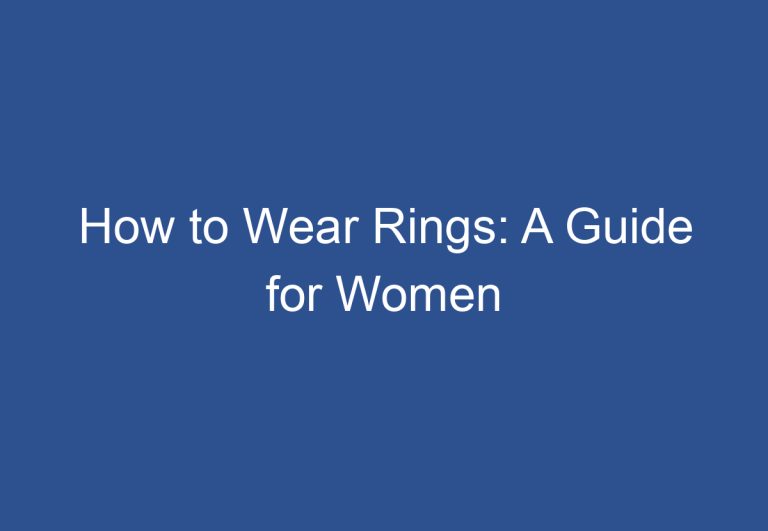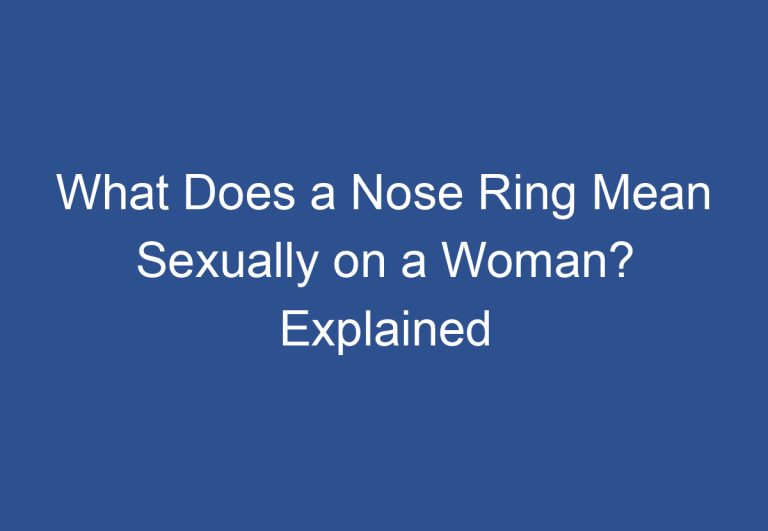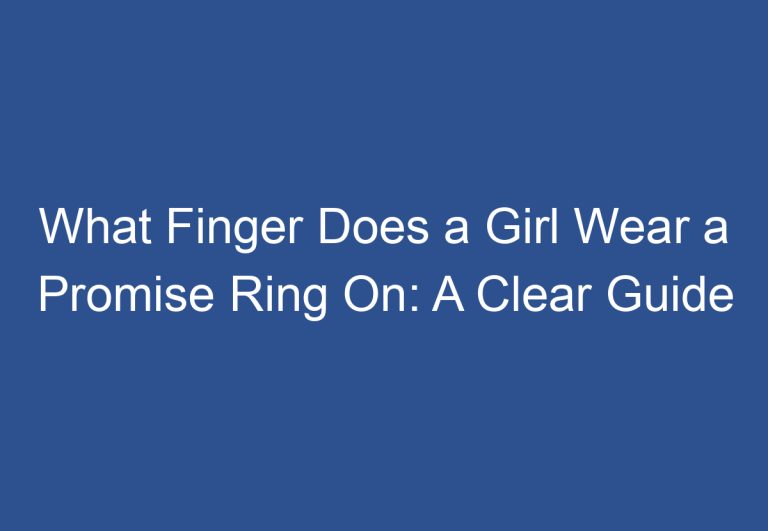A Blind Girl’s Pencil Ring and Kitten Answer: A Tale of Loss and Discovery
The “Blind Girl Lost Her Pencil, Ring, and Kitten” riddle has become a prominent and common riddle that has been circulating around the internet for years. It is a tricky riddle that can trick your friend and provide fun and amusement for those who solve it. The riddle has garnered a lot of attention and has become a favorite among riddle enthusiasts.

The riddle goes as follows: “A blind girl lost her pencil, ring, and kitten. What did she lose first?” Many people would assume that the girl lost her pencil first, but the answer is not that simple. The riddle requires logical reasoning and innovative thinking to arrive at the correct answer. In this article, we will explore the answer to this tricky riddle and the reasoning behind it.
The Riddle Unveiled

Exploring the Riddle
The riddle “A blind girl lost her pencil, her ring, and her dog. What did she lose first?” is a classic example of a challenging brain-teaser. Riddles have been used for centuries to stimulate the in-depth thinking process and creativity of the human mind. They are enigmatic and often require a spark of creativity to decipher.
The blind girl in the riddle has lost three things – her pencil, her ring, and her dog. The question is, what did she lose first? At first glance, it seems like a simple question, but upon closer inspection, it becomes clear that there is more to it than meets the eye.
Logical Deductions
The logical reasoning behind the riddle is that the blind girl lost her eyesight first. This deduction may not be immediately apparent, but with innovative thinking and logical deductions, it becomes clear that the girl’s blindness is the key to solving the riddle.
The riddle challenges the reader to think beyond the mundane chores of daily routine and encourages them to engage in brainstorming questions that can serve as stress-busters. Solving riddles like this one can leave one feeling refreshed and amused.
The Impact of Riddles
Riddles like this one can have a significant impact on the human mind. They challenge the brain to think creatively and logically, which can lead to improved problem-solving skills and a better understanding of complex concepts.
Riddle Variations
This riddle has numerous variations, with different objects being lost, such as a hat, a glove, and a scarf. However, the basic premise remains the same – the reader must use their logical and creative abilities to determine what was lost first.
In conclusion, the riddle “A blind girl lost her pencil, her ring, and her dog. What did she lose first?” is a perfect example of a tricky riddle that challenges the mind and encourages innovative thinking. It is a testament to the power of the human mind and its ability to solve complex puzzles through logical reasoning and creativity.
Beyond the Riddle

Enhancing Cognitive Abilities
Riddles are not just a source of entertainment but also a great way to enhance cognitive abilities. They help in developing logical reasoning skills, brainstorming questions, and thinking innovatively. The blind girl lost her pencil, ring, and kitten riddle is a perfect example of a riddle that challenges the mind to think beyond the obvious. Such riddles can be a great stress-buster, and solving them can leave one feeling refreshed.
Riddles in Daily Life
Riddles can also be incorporated into daily routines to make mundane chores more interesting. For instance, one can start the day by solving a riddle while having breakfast. This can be a great way to start the day, as it gets the brain working and sets a positive tone for the rest of the day. Riddles can be used as a fun activity during family gatherings or as a way to bond with friends.
Disclaimer
It is important to note that riddles should not be taken too seriously. While they can be a great source of entertainment and cognitive stimulation, they should not be used as a substitute for professional advice or diagnosis. It is also important to remember that not all riddles are suitable for all age groups, and some may contain content that is not appropriate for children. Therefore, it is recommended to use discretion when choosing riddles to solve.
Innovation and logical reasoning are key components of solving riddles. By incorporating riddles into daily routines, one can enhance cognitive abilities and make mundane chores more interesting. However, it is important to remember that riddles should not be taken too seriously and should not be used as a substitute for professional advice or diagnosis.
Frequently Asked Questions

What is the solution to the riddle where a blind girl loses multiple items?
The solution to the riddle is that the girl lost her sight first. The riddle is designed to be tricky and make people think that the girl lost her pencil first, but the answer is actually her sight.
How do you determine what the blind girl lost first in the common riddle?
In order to determine what the blind girl lost first, you need to carefully read the riddle and think logically about the situation. The answer may not always be obvious, but with some careful thought, you can arrive at the correct solution.
Can you explain the trick behind riddles involving items lost by individuals?
The trick behind riddles involving items lost by individuals is to make the answer seem obvious, when in fact it is not. These riddles are designed to test your ability to think critically and logically, and to see beyond the surface level of the question.
What are some popular variations of the riddle where someone loses several objects?
Some popular variations of the riddle include losing a hat, a glove, and a scarf, or losing a phone, a wallet, and a set of keys. The key to solving these riddles is to carefully read the question and think logically about the situation.
What is the significance of the order in which items are lost in these riddles?
The order in which items are lost in these riddles is significant because it can help to mislead the reader into thinking that the answer is something other than what it actually is. By carefully considering the order in which the items are lost, you can often arrive at the correct solution.
Are there any moral lessons to be learned from riddles about losing possessions?
While riddles about losing possessions may not have an explicit moral lesson, they do teach us the importance of careful observation, critical thinking, and logical reasoning. These skills are valuable not just in solving riddles, but in many aspects of life.








